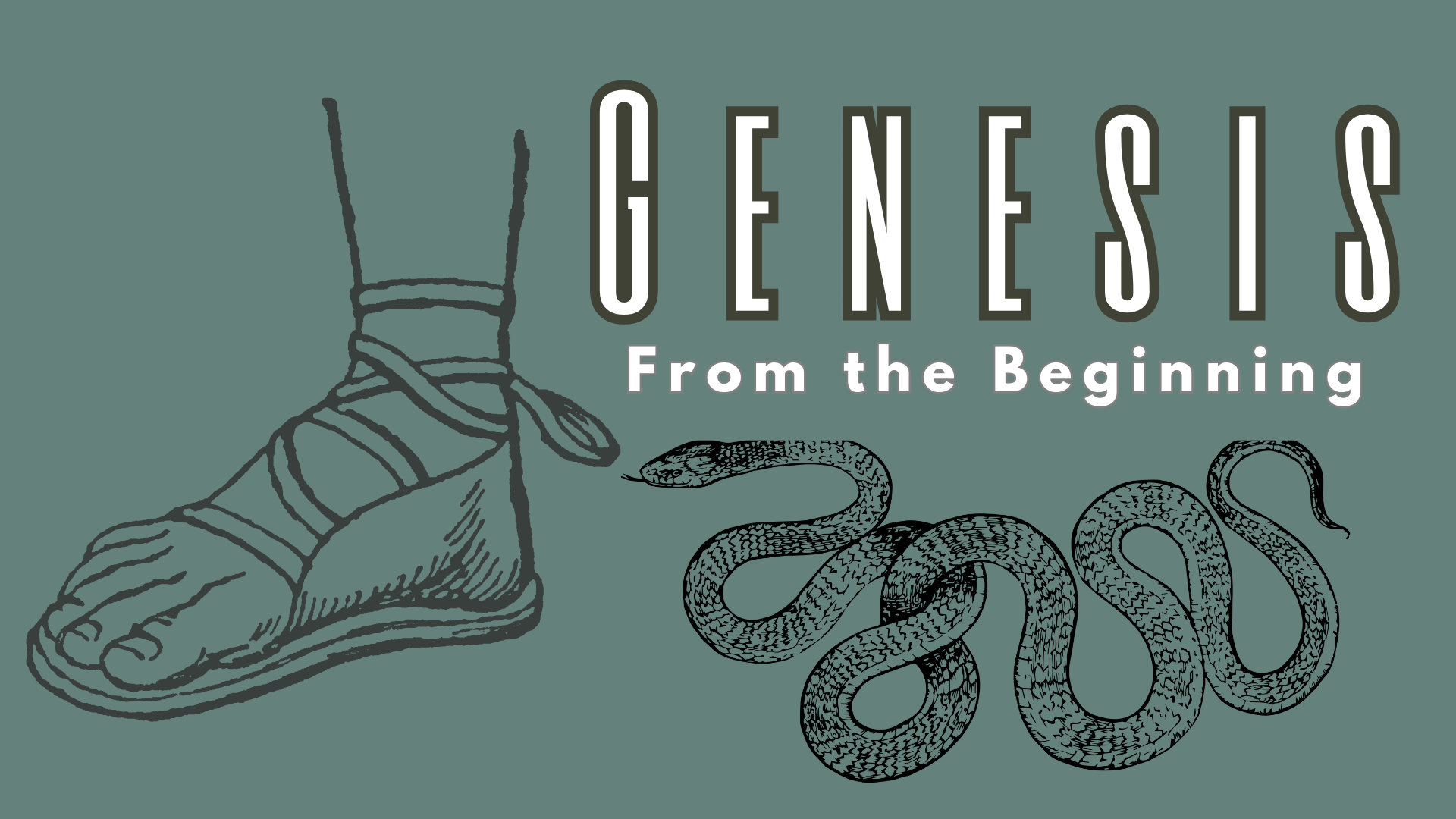Mercy from El-Shaddai
/First things first, a summary of these three chapters...
- After a focus on Joseph in chapters 39-41, Moses, our storyteller, returns to Joseph's father Jacob, and his 11 brothers. In a beautiful segue, Moses says at the end of chapter 41 that "all the earth came to Egypt to Joseph to buy grain." As we will find out, this will include Jacob and his family!
- Jacob sends his sons to Egypt for food. But, not finding his sons to be dependable - and we all know why - he keeps the other son of Rachel, Benjamin, back home with him.
- In the sovereignty of God, the sons of Jacob encounter their brother, Joseph. Joseph recognizes them, but they do not recognize him.
- To test them, Joseph speaks roughly to his brothers, accuses them of being spies, and puts them in prison. After a few days, Joseph releases them (except Simeon) to return home, but requires that they bring their youngest brother Benjamin back. (Joseph wants to see his only full-brother.)
- On their return, the brothers discover that the money they had paid for the food is back in their sacks! They tell their father Jacob everything that has happened, and he grieves, because he does not want to lose his other son from Rachel.
- After some time, Jacob sends them back to Egypt - with Benjamin - for more food, and Judah pledges that if Benjamin does not return, he will bear the blame forever. (43:8-9)
- Joseph has his brothers over for a feast. When he saw Benjamin, his compassion grew warm" for him (43:30). Benjamin was given a 5x portion at the feast!
- Joseph's test of his brothers comes to a culmination: he once again sends them on their way with full sacks of food and money, but he also puts his silver cup in Benjamin's sack, essentially framing him.
- When it is discovered that the cup is in Benjamin's sack, Judah - remember, the very one whose idea it was to sell Joseph into slavery (37:26-27) - steps forward. He explains that his father's life is so bound up in Benjamin's, that they will not return home without Benjamin. Judah pledges himself in Benjamin's place, and says that he will "bear the blame." (44:30-34)
- Spoiler Alert: The big reveal of Joseph to his brothers will be in chapter 45!
---
Psalm 40:12 says this,
For evils have encompassed me beyond number,
My iniquities have overtaken me, and I cannot see,
They are more than the hairs of my head,
My heart fails me.
In this part of the story, it seems that the brothers of Joseph could resonate well with the Psalm verse above. Their selling of Joseph into slavery is likely 20 years in the rearview mirror, but they cannot shake the guilt of this sin they have committed.
We know this because their immediate thought in response to the difficulties they face in Egypt (unbeknownst to them, at the actual hand of Joseph!) is, "This is because of what we did to Joseph 20 years ago."
"Then they said to one another, 'In truth, we are guilty concerning our brother, in that we saw the distress of his soul, when he begged us and we did not listen. That is why this distress has come upon us.'"
- Genesis 42:21
Time has not erased the sin, the stain, or the guilt.
Their evils have encompassed them.
Their iniquities have overtaken them.
But, there would be *mercy* for the brothers of Joseph.
In the heart of this section, as Jacob is preparing to send Benjamin off to Egypt with his other sons, he says something that it would do well for us to linger on...
"May God Almighty grant you mercy..." (43:14)
"God Almighty." You might be familiar with it in the Hebrew: El-Shaddai. It could mean "God Almighty", or could mean some version of, "God, the All-Sufficient One." The God who provides, nourishes, and comforts.
And we have seen this title for God before in Genesis...
- When God came to Jacob's grandpa Abraham in Gen. 17 to establish the covenant with him, His first words to him were "I am God Almighty" (El-Shaddai).
- In Jacob's own story, his father Isaac blessed him in the name of El-Shaddai (28:3), and he, just like Abraham, received the covenant promises from El-Shaddai (35:11).
And it is this El-Shaddai who will grant *mercy* to them.
What is mercy? In Bible study, we often (rightly) link together mercy with grace - they are two sides of the same coin...
- Grace is God giving us what we do NOT deserve: kindness, love, and blessing.
- Mercy is God NOT giving us what we do deserve: judgment, separation, and wrath
Additionally, "mercy" here in 43:14 is the Hebrew word "racham," - a word often used in the Old Testament as a parallel word to the "hesed" (steadfast love) of God. For example, David's prayer of repentance in Psalm 51:1...
Have mercy on me, O God,
according to your steadfast love (hesed);
according to your abundant mercy (racham)
blot out my transgressions.
And it is this same "racham" (ESV translates it "compassion") that warms within Joseph when he sees his brother Benjamin (43:30).
Because of the evil they had done to their brother, 20 years before, these brothers stood guilty. They deserve judgment, separation, and wrath. They were in desperate need of the "racham," the mercy of God.
---
Friends, take a moment to reflect on the sin in your own life. Let us join with the sons of Jacob in acknowledging that we too are sinners. We too are in desperate need of mercy.
Perhaps you too could say with the Psalmist, "evils have encompassed me beyond number, my iniquities have overtaken me, and I cannot see."
But we rejoice that God - El Shaddai - has had mercy on us through His Son, Jesus.
Jesus - just like his ancestor Judah - stood in our place, and bore our blame. The judgment, separation, and wrath that we deserved - Jesus took on Himself on the cross.
Through Jesus, "racham" flows to us from God Almighty.
Therefore, we can join with the Psalmist in Psalm 40, and say this...
"As for you, O Lord, you will not restrain your mercy (racham) from me;
Your steadfast love and your faithfulness will ever preserve me!"
Psalm 40:11
- Joe


